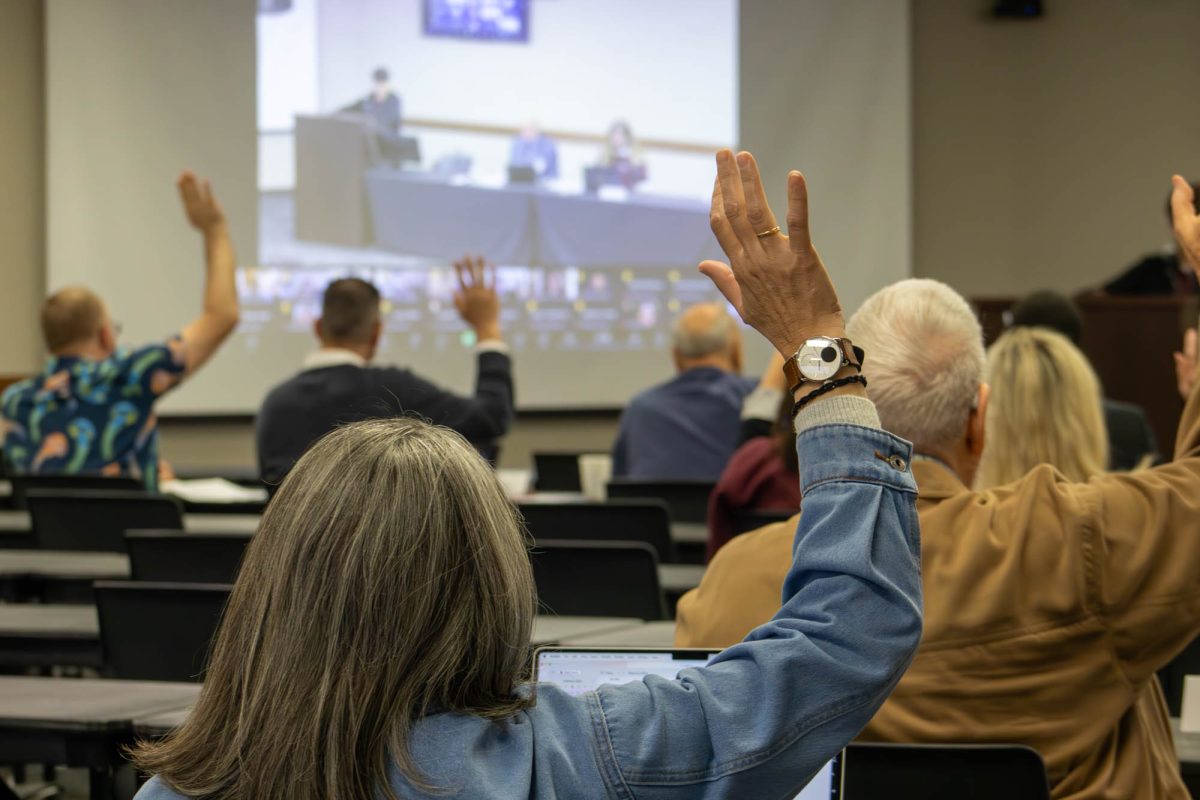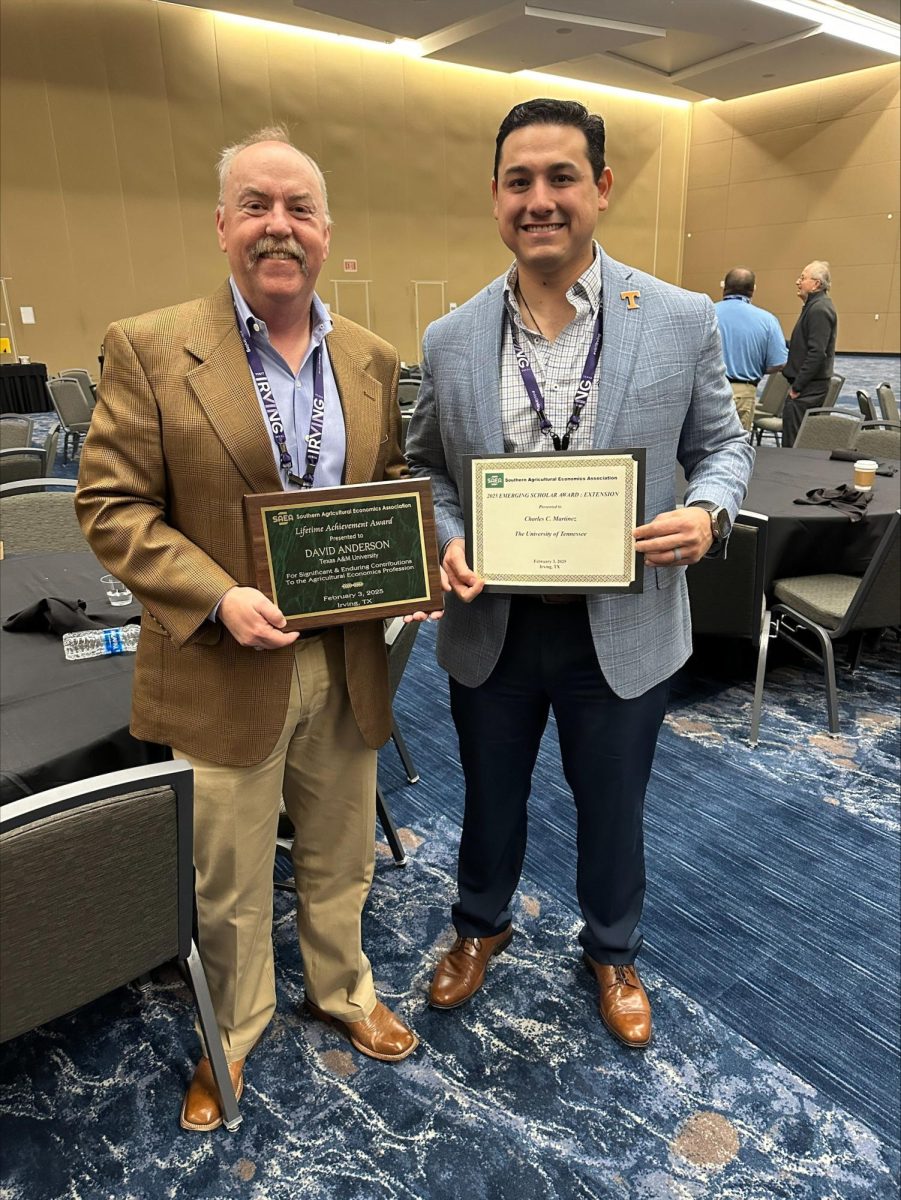The total number of Texas A&M international students who have had their legal status terminated by the federal government has risen to 23 as of Friday morning, according to a university spokesperson.
The terminations come amid a national crackdown by the Trump administration on students it claims are participating in pro-Palestine activism and “potential criminal activity,” Secretary of State Marco Rubio told reporters last month. The Battalion has confirmed that one graduate student impacted at A&M had only long-resolved driving violations on their record. A university official confirmed that none of the students had known connections to activism.
A&M officials first noticed a student’s legal status had changed on March 28, and the number has increased since. On Monday, it stood at nine students, and it rose to 11 by Tuesday and 15 by Wednesday. In a campus-wide email sent Wednesday afternoon, Provost Alan Sams said university officials don’t know why the students are being targeted but are monitoring the situation closely.
“I share this information with all of you so that we can, together, continue to make all of the students, faculty and staff who comprise the Aggie Family, feel the comfort of that family during this time,” Sams said in the email. “We are committed to doing everything in our power to support our international community as a valuable part of the university.”
Read: Here’s what to know as international students at Texas A&M continue losing their legal status
The government database federal authorities are using to terminate legal statuses is named the Student and Exchange Visitor Program, or SEVIS, and is jointly managed between universities and the Department of Homeland Security, which oversees Immigration and Customs Enforcement, or ICE. The process is different from revoking a visa, as visas are travel documents used to enter the country. SEVIS status, on the other hand, determines whether an individual is allowed to legally stay in the U.S.
In recent weeks, the number of international students who have had their visas revoked across the U.S. has reached the hundreds, a situation that Philip Rodriguez, an immigration lawyer based in Bryan, said was unprecedented.
“I couldn’t find any other time in history where we’ve had mass visa revocations and terminations like this before,” Rodriguez said.
He said that typically, universities are the parties that terminate a student’s status, not the government. On the Department of Homeland Security’s page that displays valid termination reasons, it lists items such as dropping below a full course load, withdrawing from the university and being absent from the U.S. for more than five months. The page makes no mention of using criminal records as the basis for termination, and an official said none of the impacted students at A&M had any violent records known to the university.
According to an email obtained by The Battalion, the federal government isn’t communicating with A&M, forcing the university to check students’ statuses multiple times a day to find any discrepancies. If one is found, they contact the student immediately to explain their options, which in most cases include either leaving the U.S. or applying for reinstatement. If a student doesn’t reapply, the ICE agents may investigate to ensure the student has departed, according to the Department of Homeland Security.
“I would like to offer hope,” Rodriguez said. “If there’s any students in these situations, just know that a knowledgeable immigration attorney can help you. But if it’s someone whose status has been terminated, they need to act quick because they have typically less than five months to apply for reinstatement. So, anyone who wants to challenge a termination, just act quick.”
Because students aren’t being notified, Rodriguez said it presents several dangers if they aren’t alerted to a status change. For example, if they briefly leave the U.S., they won’t be able to re-enter the country upon returning if their SEVIS was terminated.
“Another consequence could be for those people that are here in the U.S., if they ever encounter immigration officials, the student might think they’re safe,” Rodriguez said. “Immigration officials might say, ‘No, your visa has been revoked. Your SEVIS has been terminated. You need to come with us, because either [one], we’re going to try to deport you immediately’ — which shouldn’t happen under the law, by the way, but it sometimes does. Or two, ‘You need to come with us, because we’re going to detain you in an immigration detention center while you go to immigration court.’”
A list maintained by The Texas Tribune puts the number of international students affected in Texas up to at least 118, including 27 at the University of North Texas, 27 at the University of Texas at Arlington, 19 at the University of Texas at Dallas, nine at the University of Texas Rio Grande Valley, four at Texas Woman’s University and three at Texas Tech University. An unknown number of students have been impacted at the University of Texas at Austin and the University of Texas at El Paso.
This is an evolving story and will be updated to reflect the most recent information when it becomes available.





















